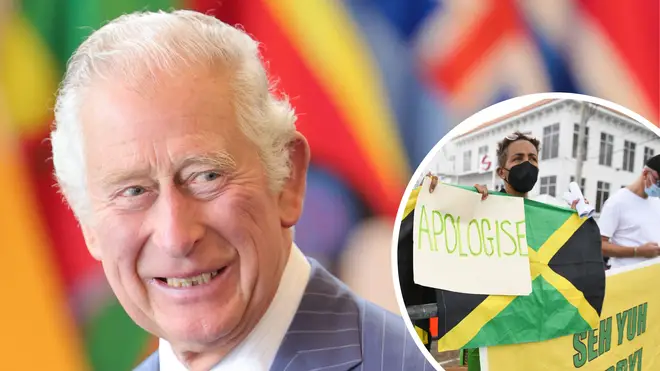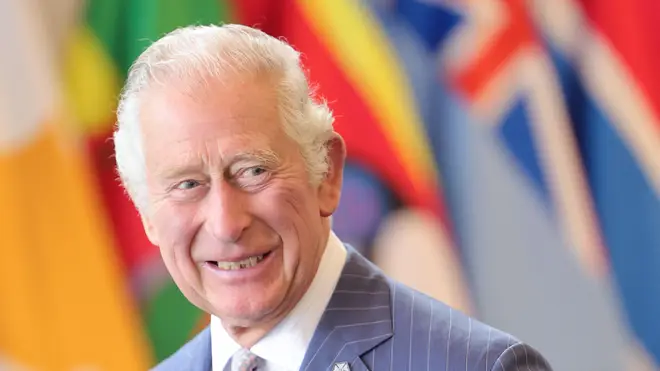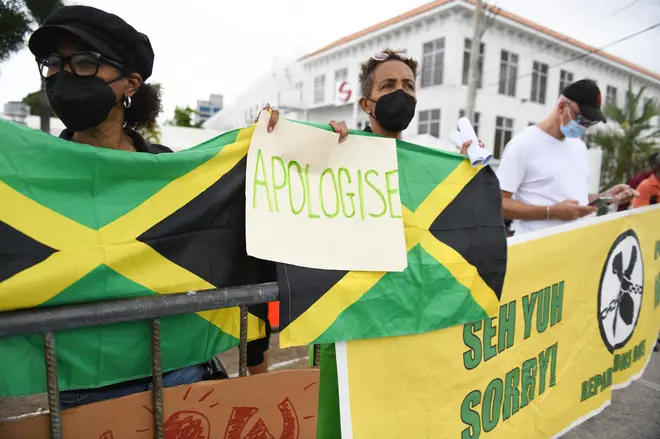
Shelagh Fogarty 1pm - 4pm
26 June 2022, 08:20 | Updated: 26 June 2022, 08:29

The Prince of Wales believes the slave trade should be taught as widely and as thoroughly as the Holocaust.
Charles believes there is a gap in awareness and education of the atrocity despite Britain playing a key part in it, the Telegraph reports.
The paper quoted a royal source as saying: "The Prince notes that in the UK, at a national level, we now know and learn at school all about the Holocaust.
Read more: Kate's touching tribute to the 'sacrifice' of Britain's soldiers on Armed Forces Day
Read more: Smile for the cameras: Charles and Boris meet face-to-face amid 'Rwanda row'
"That is not true of the transatlantic slave trade... and there’s an acknowledgment that it needs to happen."
The source said the Prince was not trying to 'dictate' education policy, but more to encourage individuals to take responsibility for their own knowledge of the horrors of the slave trade.
The source added that Charles is trying to do just that.

Prince Charles is patron of the Holocaust Memorial Day Trust.
The paper suggests he is looking for a similar charitable organisation for the slave trade.
It is believed he thinks such an initiative would help educate and inform Brits.
Read more: Boris to tell Charles to 'keep an open mind' over Rwanda migrant plan
Read more: Queen back riding again nine months after being told to quit
The Royal Family has faced some tough questions over recent months as their links to Britain's involvement in the slave trade are slowly brought back into public conversation.
A number of royals visiting Caribbean islands in the past few months have faced protests, calls for an apology, and announcements that countries plan to ditch the monarchy and become a republic.
When Prince Edward, the Queen's youngest son, visited Saint Lucia at the end of April, one protester demanded the Queen "apologise for slavery".
Kate Middleton and Prince William were also met with protests when they toured the islands.
During a speech William described the slave trade as "abhorrent".
"I want to express my profound sorrow," he said.
"Slavery was abhorrent.
"And it should never have happened."

British monarchs supported or profited from the slave trade in the 17th and 18th centuries.
Elizabeth I was involved with John Hawkins, one of the first British slave traders, while Charles II encouraged its expansion.
Along with James II, his brother, they invested private money the Royal African Company, which transported Africans over the Atlantic, and later slavery abolitionists were opposed by the Duke of Clarence, who later became William IV.